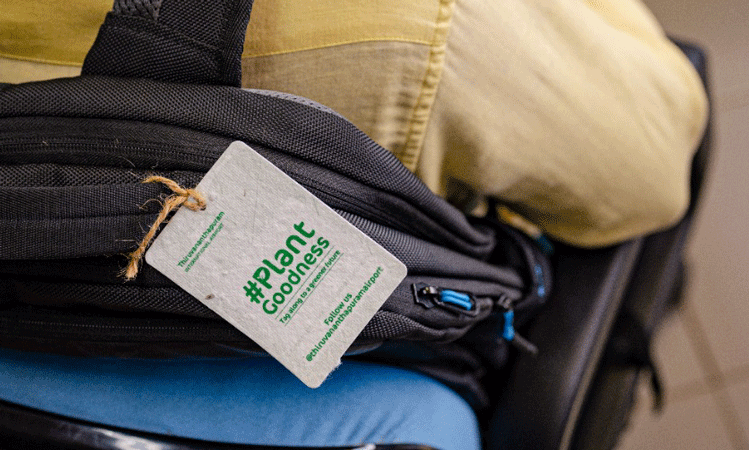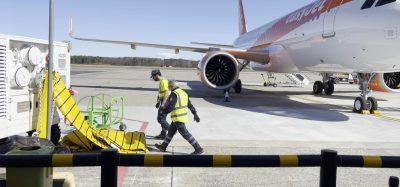AAHL introduces plantable baggage tags
- Like
- Digg
- Del
- Tumblr
- VKontakte
- Buffer
- Love This
- Odnoklassniki
- Meneame
- Blogger
- Amazon
- Yahoo Mail
- Gmail
- AOL
- Newsvine
- HackerNews
- Evernote
- MySpace
- Mail.ru
- Viadeo
- Line
- Comments
- Yummly
- SMS
- Viber
- Telegram
- Subscribe
- Skype
- Facebook Messenger
- Kakao
- LiveJournal
- Yammer
- Edgar
- Fintel
- Mix
- Instapaper
- Copy Link
Posted: 9 June 2022 | International Airport Review | No comments yet
Adani Airports Holding Limited has introduced around 1,500 plantable baggage tags to passengers flying through the operator’s seven airports, as part of unique sustainability initiatives to support a greener India.


Credit: Adani Airports Holding Limited (AAHL)
Passengers flying through Mumbai, Ahmedabad, Thiruvananthapuram, Lucknow, Jaipur, Mangalore, and Guwahati, were in for a pleasant surprise. Their baggage tags were not the usual paper tags but filled with plantable seeds. Around 1,500 plantable baggage tags were distributed to passengers flying through these seven airports across India.
“Environmentalists have often said that one of the simplest ways to go green and save nature is to plant as many trees as possible,” commented Adani Airports Holding Limited (AAHL), spokesperson. “This is why we decided to distribute plantable baggage tags were to all our airport users on the eve of World Environment Day (5 June 2022). We also launched various other activities and initiatives to maximise awareness about the urgent need to protect the environment.”
With gardening becoming one of the most sought-after activities since the onset of the pandemic, the plantable baggage tags are an easy and effective way for passengers from all walks of life, especially the younger lot, to connect with nature.
The environmental-friendly baggage tags contain seeds of summer vegetables, such as green chilies, tomatoes, and brinjal, along with herbs such as basil and flowers like marigold. While the seeds are all organic, the sprouting rate of these plants, vegetables, and herbs is around 60 to 70 per cent. If all of them were planted and taken care of, every packet could sprout into 720 to 1,200 vegetable plants
TAKE A READ:
Airport security and brand image: Eight measures for a ground-up approach to prevent bad press
Mumbai Airport hosts 45-day ‘Summer Carnival’ for passengers
Adani Group Airports raises $250 million for airports development
Ahmedabad Airport completes 3.5-km-long runway in just 75 days
AMD to assist passengers through AI-based surveillance system
Often the packets in which such seeds are distributed are discarded after taking out the seeds. But the idea behind these special baggage tags is that the entire tag can be soaked in water and planted in the ground/soil, to create a resourceful and beautiful green garden.
The paper used in these tags is completely wood-free and is made using upcycled cotton scrap. The string is made from jute. Both these materials are easily and quickly biodegradable, lessening the waste dumped into the environment.
Also, since the colors used are aqueous, they do not harm the seeds, the soil, or the water even if the baggage tags are disposed of in case they are not planted.
In addition to plantable baggage tags, plants and seedlings were also distributed in cotton bags to passengers arriving at the airport along with specially made cotton bags that can be used during travelling.
Recently, more than 2,000 trees of about 20 different species have been planted at Sardar Vallabhbhai Patel International Airport (AMD), Ahmedabad to increase the green cover at the airport. In a span of just a few months, the number of trees has gone up from 6,000 to now 8,000 trees. Along with other initiatives to enhance the green cover, the airport is also working towards reducing the carbon footprint by increasing greenery inside and outside the terminal building.
Related topics
Airport development, Baggage handling, COVID-19, Passenger experience and seamless travel, Sustainability, Sustainable development, Terminal operations


















